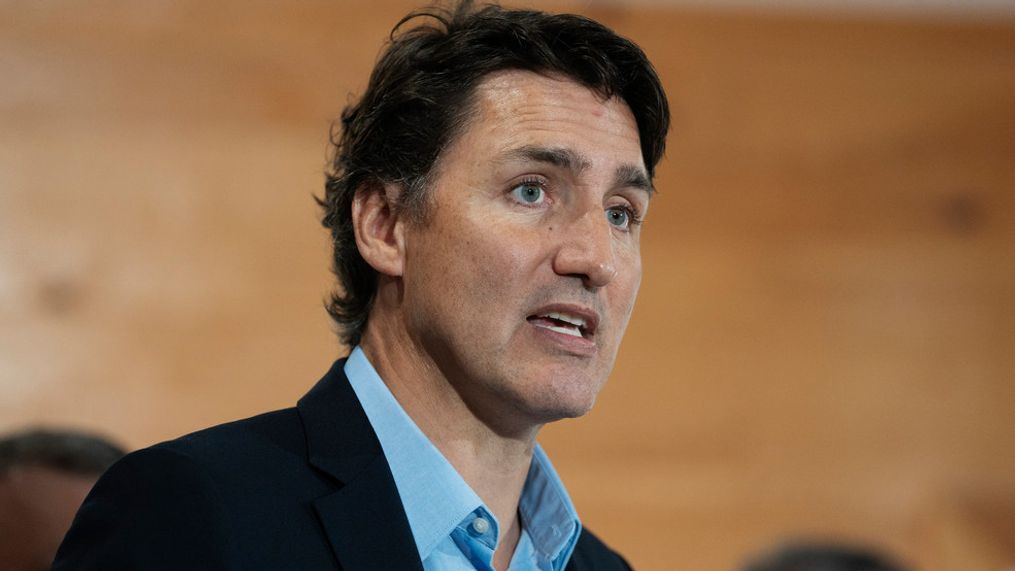Trudeau Condemns Trump’s Vision of Canada as U.S. State
In a decisive response to President-elect Donald Trump’s recent comments regarding Canada potentially becoming the 51st state of the United States, Canadian Prime Minister Justin Trudeau has sharply rejected the idea. As political pressure mounts on his administration, Trudeau’s firm stance underscores his commitment to Canada’s sovereignty and its distinct identity.
Trudeau’s Strong Rejection
Earlier this week, Trudeau took to social media platform X, formerly known as Twitter, to explicitly state his opposition to Trump’s vision. “There isn’t a snowball’s chance in hell that Canada would become part of the United States,” he tweeted, reinforcing the value of the bilateral relationship between the two countries. Trudeau emphasized that communities and workers in both nations reap significant benefits from being each other’s top trading and security partners.
This pronouncement comes on the heels of Trump’s comments made during a news conference at his Mar-a-Lago resort in Palm Beach, Florida, where he advocated for strengthening ties through “economic force.” The former president highlighted the potential advantages of such a partnership, including the elimination of tariffs, reduced taxes, and enhanced security against potential military threats from countries like Russia and China.
Trump’s Provocative Remarks
During the same press conference, Trump claimed, “Many people in Canada LOVE being the 51st State,” positing that merging the two nations could open new avenues for economic and political unity. His online posts fervently proclaimed a synergetic future, with Trump exclaiming, “Together, what a great Nation it would be!!!”
In addition to his comments, Trump has used social media to amplify this narrative, sharing memes and edited images that envision a united North America. In a pointed jab at Trudeau, Trump mockingly referred to him as a “governor” and threatened to impose substantial tariffs on Canadian goods. This ongoing public dispute may have contributed to the mounting pressures that led to Trudeau’s announcement regarding his resignation.
Trudeau’s Political Landscape
Amid declining approval ratings and increasing dissatisfaction among Canadians due to high inflation and rising living costs, Trudeau revealed on Monday that he plans to step down once the Liberal Party selects a new leader. His resignation represents a critical juncture not only for his leadership but also for the future direction of his party as it confronts the challenges of regaining public support ahead of the next federal elections.
The internal discontent within the Liberal Party has intensified, particularly concerning strategic responses to Trump’s economic threats. With pressure from both party members and the public, Trudeau’s decision to step aside is seen as a necessary step towards political stability and renewal.
The Future of Canada’s Political Identity
The Liberal Party will appoint an interim prime minister to steer the nation until the next federal election, set for the fall. This transitional period offers an opportunity for the party to reassess its strategies and repair its relationship with constituents. Trudeau’s departure from leadership could pave the way for new approaches to governance that resonate more effectively with the Canadian electorate.
In a broader context, Trump’s suggestion to absorb Canada into the U.S. has generated a mix of intrigue and criticism. The former president has not limited his geographical aspirations to Canada; he has also revived the controversial idea of acquiring Greenland from Denmark. Such proposals raise questions about U.S. foreign policy and the ever-changing dynamics of North American relations.
Conclusion: A Nation’s Sovereignty Reaffirmed
While Trump’s vision attempts to chart unconventional territory in geopolitics, Trudeau’s unequivocal rejection highlights a critical aspect of Canadian identity: independence. The robust partnership between Canada and the U.S. will continue to evolve, but it remains anchored in mutual respect for sovereignty.
As both nations navigate their relationship, the notion of Canada becoming a U.S. state serves as a humorous yet provocative thread in political discourse. For now, Trudeau’s steadfast commitment to Canada as a distinct nation reinforces the idea that, despite pressures from the south, Canada will remain its own entity—united but independent in its path forward.
